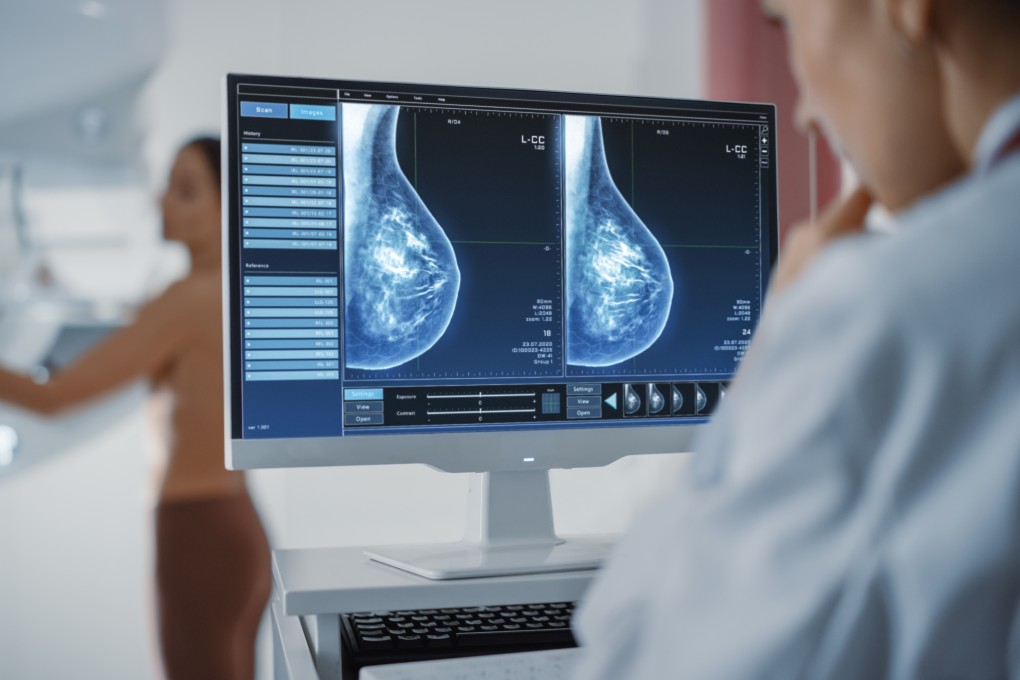Explainer | Breast cancer is best detected early by mammograms. It’s why women over 40 should have one regularly
- Mammograms are better for detecting breast cancer early than self-examination, a recent study found; and early detection brings a higher chance of survival
- In Breast Cancer Awareness Month, a survivor of the disease reveals how a mammogram helped her, and a doctor tells us how they work and when to get one

During a Covid-19 pandemic lockdown in March 2022, Ju Leung noticed a small lump in her left breast, and changes to its contour. Like so many others at the time, she had to wait to get a medical check-up.
A mammogram performed a couple of months later confirmed she had a malignant tumour 6cm (2.4 inches) in diameter. She was diagnosed with Stage 3A breast cancer in August 2022.
Although breast cancer runs in her family – both her mother and sister suffered from the disease – Leung was afraid and unsure what to expect. Luckily, her doctor gave her some positive news.
“She told me that medical treatment for breast cancer had improved in the 30 years since my mother was diagnosed, and encouraged me to get treatment immediately,” says the 63-year-old Hong Kong resident.

A month after her diagnosis, Leung underwent a mastectomy and had reconstructive surgery on her left breast. She was in hospital for nine days and later had chemotherapy and radiation therapy.
Since completing chemotherapy in November 2022 and radiation therapy in April this year, Leung has been on the road to recovery. Over the past several weeks she has been receiving therapy in the form of hormone-targeting drugs which work to block the growth of breast cancer cells.